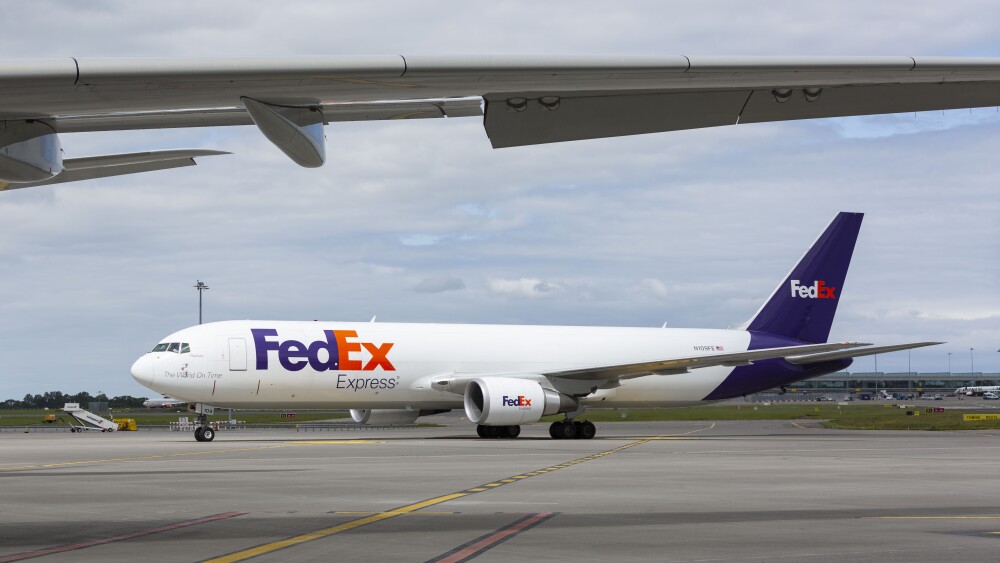FedEx Express launches new aircraft as part of the company’s fleet modernization strategy using more efficient, lower CO2 and reduced noise emission planes
Cernusco Sul Naviglio, 22 November 2019 — FedEx Express (FedEx), a subsidiary of FedEx Corp. (NYSE: FDX), and the world’s largest express transportation company, is continuing to modernize its European air fleet to improve environmental performance and operational efficiency, with the introduction of a new Boeing 767F cargo jet into its European network.
The new freighter offers superior environmental performance compared to the aircraft it replaces, including noise reduction benefits. It also provides additional capacity on the existing Milano Malpensa-Paris route, offering Italian businesses that export to the rest of Europe greater opportunity to ship their goods.
The new Boeing 767F can carry up to 91,000 pounds of cargo, which represents an increase in capacity of approximately 16% compared to the aircraft it replaces. It is also 9% percent more fuel-efficient than its predecessor.
The newly introduced aircraft operates six times a week and connects FedEx hubs in Milano Malpensa and Paris-Charles de Gaulle - one of the major FedEx hubs in Europe alongside Cologne and Liège.
Preparations for the arrival of the new Boeing 767F started a number of months ago. Thousands of hours of comprehensive training have been undertaken by team members, including air operations, ramp agents and technicians.
Ambitious Fleet Modernization Strategy
FedEx Express is committed to modernising its fleet and incorporating the latest aviation technology as part of its Reduce, Replace, Revolutionise program. FedEx began upgrading its fleet in 2007. Since then, 210 new aircraft have been introduced into the FedEx fleet which is now comprised of 679 planes, incorporating new technologies that significantly reduce noise pollution and support ambitious environmental targets around reducing fuel use and reducing carbon emissions. The FedEx Express target is to reduce aircraft emissions intensity by 30% from a 2005 baseline by 2020. Across its aircraft fleet, FedEx Express has already reduced aircraft emissions by 22.6%. In addition, the company is committed to sourcing 30% of jet fuel from alternative fuels by 2030.
FedEx Express is realizing aircraft efficiency benefits from fleet modernization and fuel conservation programs that saved more than 200 million gallons of jet fuel and avoided almost 2 million metric tons of CO2 emissions in fiscal 2018. Last year the company ordered an additional 12 Boeing 777 Freighters and 12 Boeing 767 Freighters, which are much more fuel efficient than the aircraft they will replace.
